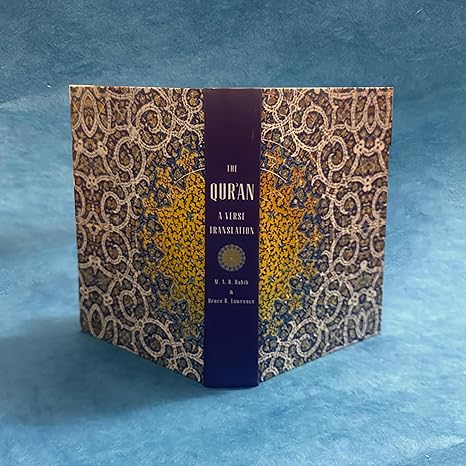Rafey Habib received his doctorate from the University of Oxford, and is currently Distinguished Professor of English at Rutgers University. He is the author of thirteen books, including The Early T.S. Eliot and Western Philosophy (1999), An Anthology of Modern Urdu Poetry in English Translation (2003), A History of Literary Criticism: From Plato to The Present (2005), Hegel and Empire (2018), Hegel and the Foundations of Literary Theory (2020) and Literary Studies: A Norton Guide (2020). He edited the Cambridge History of Literary Criticism, Vol VI (2013) and the Penguin Dictionary of Literary Terms and Literary Theory (2013; originally edited by J.A. Cuddon). He has also authored a book of poetry, Shades of Islam (2010). His essays include “Hegel and Islam” (2017) and “Translating the Qur’an: Towards a New Approach” (2021).
Bruce B. Lawrence, one of our most respected and prolific scholars of Islam, is the Marcus Family Humanities Professor of Religion Emeritus at Duke University and adjunct professor at the Alliance of Civilizations Institute, Ibn Haldun University, Istanbul. He is the author, coauthor, or editor of sixteen books about Islam. After earning his Ph.D. in Comparative Religions from Yale University in 1972, Bruce Lawrence began teaching at Duke University and taught a course on the Holy Qur’an for the latter part of his career. He retired in 2011, but continued to teach – and o engage – at Ibn Haldun University in Istanbul, where he remains an adjunct faculty member. He has written four books that examine the Qur’an at multiple levels. His first was The Qur’an: a Biography (2005),the second Who is Allah? (2015), and the third The “Koran” in English: A Biography (2017).The last was more than a textual history. It probed the trans-regional appeal of an English “Koran” beyond Arabia into Asia in the 20th century and also into America in the 21st century, all the while noting the cadence of Qur’anic Arabic as beyond the reach of most English translators.

This poetic rendition of the holy text will appeal to nonbelievers, too . . . The new translation is much more succinct and is rendered in language that is natural and limpid and, as the authors claim, ‘reads like English verse while retaining the deep structure of the Arabic text.’ Whether Habib and Lawrence’s translation becomes a standard for English-speaking Muslims like me remains to be seen. Nonetheless, their work should be of interest to everyone for the way in which it provides clarity, context, and beauty to ― and renders into poetry ― one of civilization’s most important texts.
Capturing the form of the original without distorting the content. Given that the Qur’an is recitative, meant to be read or chanted out loud, Habib and Lawrence chose verse instead of prose in short lines that amplify the succinct power of the words. They took care to suggest the pauses and cadences of the Arabic with repetitions that are not redundant but amplify the meaning of the words. As they explain, their versification transcends the flatness of linear thinking, allowing the text “to be registered on several levels: cognitive, sensible, psychological, and spiritual.” The God heard here isn’t speaking the language of fundamentalism but in allusions of infinity.
The Qur’an: A Verse Translation captures the imagery and lyricism of the Sacred Text superbly, while renovating the language of earlier translations. An extraordinary achievement, it will be my go-to translation from now on.
I have read or consulted more translations of the Qur’an than I can remember, but none did what this one does. None took me aside, as it were, before beginning, explained how the Qur’an works aesthetically and orally in Arabic and then proceeded to explain in equal detail how the verse translation awaiting me would work aesthetically and, again, orally to duplicate this effect in English. Habib and Lawrence have unlocked for me as no one has before a world masterpiece of sacred oratory.
Translation is always about interpretation and choice. Habib and Lawrence prioritize conveying some of the literary beauty of the Qur’an, while maintaining clarity. Their translation, which can be read easily and out loud, is an excellent resource, especially for those who do not have access to the original Arabic text.
Too many translations of the Qur’an focus only on semantics while neglecting the meaning conveyed by the clear, beautiful and majestic forms through which God has chosen to speak to humanity. Habib and Lawrence’s verse translation is a refreshing and compelling contribution to the genre that will resonate with many listeners/readers. I also appreciate the layout of the text which is elegant and uncluttered; the Qur’an deserves no less than this care and attention.
This must be the most beautiful translation of the Qur'an ever, being the first attempt to produce a verse rendition of the final divine revelation to humankind. It is both impressively poetic and accurate. It also includes an elaborate introduction, furnishing insightful background to the Islamic Holy Book.



Copyright © 2024 | thequranverse.com | All rights reserved